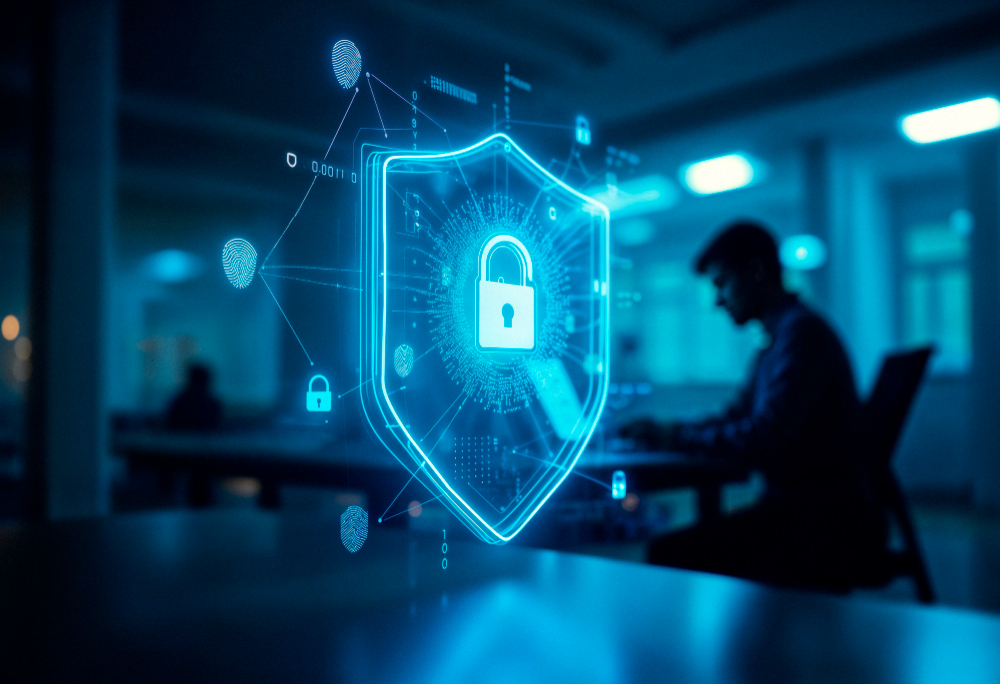Industrial Control Systems (ICS) Security Market: Trends, Challenges, and Future Prospects

Strong 8k brings an ultra-HD IPTV experience to your living room and your pocket.
The Industrial Control Systems Security Market are vital to the functioning of essential infrastructure such as power grids, water treatment plants, manufacturing facilities, and transportation networks. With the increasing digitization of industrial processes and the adoption of smart technologies, the ICS Security market has emerged as a critical focus for safeguarding operational technology (OT) environments against evolving cybersecurity threats.
1. Understanding ICS and the Importance of Security
ICS refers to an integrated system that manages industrial operations through the use of hardware and software. These systems include Supervisory Control and Data Acquisition (SCADA), Distributed Control Systems (DCS), and Programmable Logic Controllers (PLCs). While ICS has traditionally been isolated from standard IT systems, the rise of Industry 4.0 has driven greater connectivity between IT and OT networks. This convergence has exposed ICS to potential vulnerabilities, making robust security measures paramount.
Why ICS Security Matters: ICS are responsible for the management of critical processes where any disruption can lead to dire consequences, including significant financial loss, operational downtime, and, in worst-case scenarios, threats to public safety. Given the high stakes, ensuring the security of these systems is not just a priority—it’s a necessity.
2. Current Trends Driving the ICS Security Market
a. Rise of Advanced Persistent Threats (APTs): Cyberattacks on ICS are becoming more sophisticated, often involving APTs that leverage stealth, long-term operations, and deep system penetration to disrupt or damage industrial processes. Attackers may target ICS to extract sensitive data, sabotage equipment, or gain control over infrastructure.
b. Regulatory and Compliance Mandates: Governments and regulatory bodies worldwide are enforcing stringent standards to secure ICS. Frameworks such as the NIST Cybersecurity Framework, ISA/IEC 62443, and the EU’s Network and Information Security (NIS) Directive mandate strict security protocols to protect industrial environments. Compliance with these regulations is driving investments in ICS security solutions.
c. Integration of AI and Machine Learning: The use of artificial intelligence (AI) and machine learning (ML) in ICS security solutions has enhanced the ability to detect anomalies and identify threats more proactively. These technologies can adapt to new attack patterns and improve threat detection by analyzing vast amounts of data in real-time.
d. Remote Work and Industrial IoT (IIoT): The COVID-19 pandemic accelerated the trend of remote work and the use of IIoT, which has expanded the attack surface of industrial systems. More connected devices and remote access points mean increased potential for breaches if robust security measures are not in place.
3. Key Challenges in ICS Security
a. Legacy Systems: One of the most significant challenges in securing ICS is dealing with legacy systems. Many ICS were not designed with security in mind, making them difficult to integrate with modern cybersecurity solutions. Retrofitting older systems to include security protocols is both costly and complex.
b. Limited Cybersecurity Expertise: The skill gap in cybersecurity, especially in OT environments, poses a major challenge. Organizations often struggle to find professionals with the necessary expertise to manage and secure ICS. This shortage impedes the implementation of comprehensive security measures.
c. Balancing Security with Operational Continuity: Introducing new security measures can sometimes interfere with the performance of ICS, which are designed for real-time process control. Striking a balance between maintaining system integrity and ensuring robust security without affecting operations remains a challenge.
d. Sophisticated Attack Methods: Threat actors are using increasingly sophisticated methods such as ransomware, zero-day exploits, and supply chain attacks to compromise ICS. This requires companies to stay ahead of the curve by adopting cutting-edge security technologies and continuously updating their defenses.
4. Market Segmentation and Key Players
Segmentation by Solution Type:
Network Security: Includes firewalls, intrusion detection systems (IDS), and intrusion prevention systems (IPS) designed to protect communication channels.
Endpoint Security: Ensures that devices such as PLCs and remote terminals are secured against unauthorized access and malware.
Application Security: Focuses on securing software applications used in industrial operations.
Data Protection and Integrity: Solutions aimed at ensuring the confidentiality and integrity of data within ICS environments.
Segmentation by Industry Vertical:
Energy and Power: Critical due to the reliance on uninterrupted energy supply.
Manufacturing: Includes automotive, food processing, and other sub-sectors.
Oil and Gas: Often targeted due to its economic importance.
Water Treatment: Essential for public health and safety.
Key Market Players:
The ICS Security market comprises several leading companies that offer comprehensive solutions. Key players include:
Honeywell International Inc.: Known for integrated ICS security solutions that cover both software and hardware.
Siemens AG: Provides robust automation and digitalization solutions with a focus on OT security.
ABB Ltd.: Offers cybersecurity services tailored for industrial operations, including risk assessments and threat intelligence.
Schneider Electric: Focuses on secure automation solutions that integrate advanced security features.
Fortinet Inc.: Specializes in network security solutions that cater to OT environments.
Palo Alto Networks: Offers next-generation firewall solutions and comprehensive cybersecurity platforms.
5. Future Prospects and Innovations
The ICS Security market is poised for continued growth, driven by technological advancements and the need for improved protection mechanisms. The following trends are expected to shape the market:
a. Increased Use of Zero Trust Architecture: Zero trust principles, which operate under the assumption that no entity should be trusted by default, are gaining traction. Implementing a zero trust framework helps in securing ICS by segmenting networks and ensuring strict access controls.
b. Greater Focus on Threat Intelligence: The collection and analysis of threat intelligence are becoming central to ICS security strategies. This involves using data to anticipate and respond to potential threats proactively.
c. Blockchain for Secure Data Transmission: Blockchain technology is being explored for its potential to create secure, immutable records of data transactions, making it harder for attackers to alter ICS data.
d. Enhanced Collaboration and Information Sharing: Industry-wide collaborations and public-private partnerships are essential for combating threats more effectively. Initiatives such as the Industrial Control Systems Cyber Emergency Response Team (ICS-CERT) facilitate this information sharing and offer guidance to organizations.
6. Conclusion
The ICS Security market is witnessing rapid advancements due to the convergence of IT and OT, the rise of IIoT, and the increasing threat of sophisticated cyberattacks. As industries continue to adopt smart technologies and automation, the need for robust ICS security measures will only grow. To stay protected, organizations must invest in cutting-edge solutions, keep pace with regulatory requirements, and foster a culture of cybersecurity awareness.
The future of ICS Security lies in embracing innovation, fostering collaborations, and staying vigilant in the face of ever-evolving threats. The market will continue to expand as more industries recognize the importance of securing their critical infrastructure against digital and physical threats.
Note: IndiBlogHub features both user-submitted and editorial content. We do not verify third-party contributions. Read our Disclaimer and Privacy Policyfor details.







